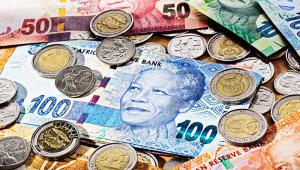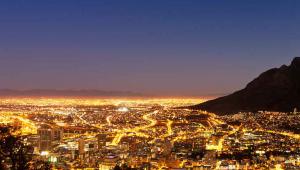The government projects a growth of 1.1% in 2018 and 1.5% in 2019, Malusi Gigaba said in a speech delivering the medium-term budget policy statement yesterday.
He expressed his confidence in the country’s economy and said growth is expected to increase slowly, reaching 1.9% in 2020.
The weak growth was attributed to political and social policy uncertainty.
The gross national debt is projected to reach 61% of GDP by 2022, with debt-service costs approaching 15% of main budget revenue by 2020/21, the finance minister said.
He said: “Over the past four years, government has followed a path of measured fiscal consolidation, aiming to stabilise the debt-to-GDP ratio by reducing spending and introducing tax increases.
“This strategy met with some success, reflected in a narrowing primary deficit. But debt has continued to rise as a share of GDP as economic growth rates have declined.”
He also said the predicted tax revenue shortfall is expected to stand at R50.8bn, the largest since 2009.
“This year, sluggish economic growth has caused a significant reduction in the tax revenue outlook, which has significantly eroded government’s fiscal position,” Gigaba said.
The government aims to grow the economy 5.4% per year and bring unemployment down to 6% by 2030 through the National Development Plan 2030, the finance minister said.
The consolidated budget deficit will widen to 4.3% of GDP in 2017/18, against a budget target of 3.1% of GDP for the year.
Gigaba also touched on the global economy recovering, but IMF warned earlier this month that the recovery is “incomplete” and may not last.
Gigaba said: “Improving our economic growth outlook over the period ahead remains our biggest challenge.”
The IMF projected global growth to average 3.6% in 2017 and 3.7% in 2018.
OECD has called on South Africa to make radical reforms to revive economic growth.
The South African currency weakened by 1% against the dollar the day after president Jacob Zuma announced a surprise cabinet reshuffle last month.







